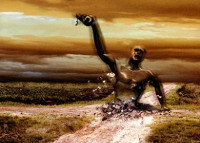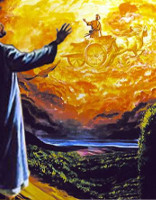 Back on the 9th of February 2013, Tom Wright and James White discussed / debated the issue of justification in the writings of St Paul on the Unbelievable? Radio show, hosted by Justin Brierley. The discussion was titled What did St Paul Really Say? Thanks to the efforts of my friend Roy Soliman who transcribed this, the transcript of that discussion is now available here at Right Reason.
Back on the 9th of February 2013, Tom Wright and James White discussed / debated the issue of justification in the writings of St Paul on the Unbelievable? Radio show, hosted by Justin Brierley. The discussion was titled What did St Paul Really Say? Thanks to the efforts of my friend Roy Soliman who transcribed this, the transcript of that discussion is now available here at Right Reason.
The transcript is in the articles section.
And you can listen to the episode over at Unbelievable?
Enjoy!

 Does the Bible actually teach that souls live on when the body dies? Short story: no.
Does the Bible actually teach that souls live on when the body dies? Short story: no.

 How did St Paul read the creation story?
How did St Paul read the creation story?

 If the doctrine of divine timelessness is true, then it turns out – perhaps surprisingly to some people – that materialist Christology – and in particular what it has to say about the death of Jesus – is given a helping hand.
If the doctrine of divine timelessness is true, then it turns out – perhaps surprisingly to some people – that materialist Christology – and in particular what it has to say about the death of Jesus – is given a helping hand. Did you know that I’m an Apostle? It’s true! My ex sent me packing, and the word “apostle” in the Bible comes from a Greek word that means “sent one.” Don’t argue with the Bible, this is what the Greek means!
Did you know that I’m an Apostle? It’s true! My ex sent me packing, and the word “apostle” in the Bible comes from a Greek word that means “sent one.” Don’t argue with the Bible, this is what the Greek means!